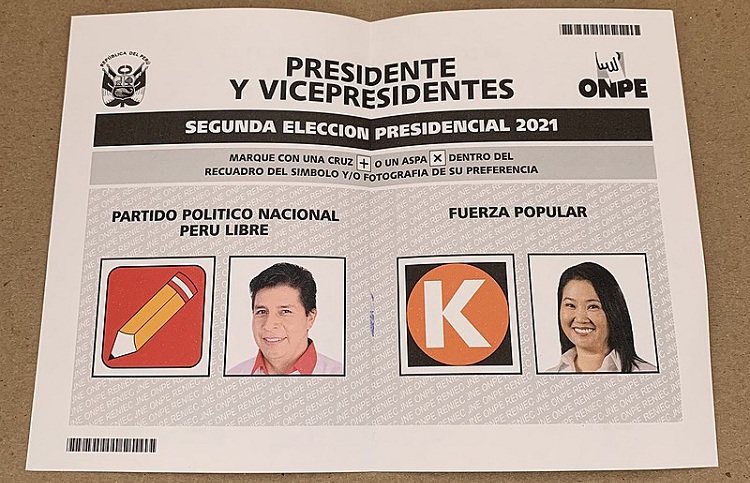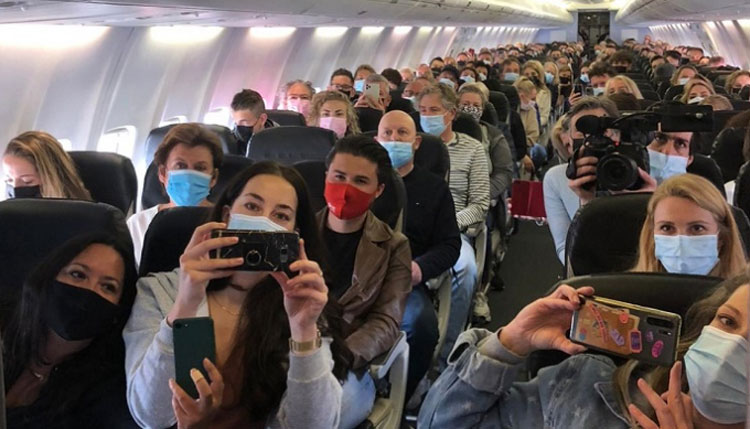The Diplomat
As usual in these cases, the electoral behavior of Peruvians living in Spain showed very different results from those of their compatriots living in Peru itself in the second round of the presidential elections, held this past Sunday.
With 100% of the votes processed in Spain, the candidate of Fuerza Popular, Keiko Fujimori, obtained a very wide lead over Pedro Castillo, candidate of the Perú Libre party. Specifically, the daughter of former president Alberto Fujimori obtained 62.2% of the votes cast, with a total of 27,356 ballots, while the leftist Castillo obtained 37.8%, with a total of 16,629 votes, according to data from the National Office of Electoral Processes (ONPE). The difference between the two, therefore, is almost 11,000 votes.
These results contrast with those registered in Peru itself, where, with almost 100% of the tallies already counted (and with an abstention of just over 25%, despite the fact that voting is obligatory under penalty of a fine), Castillo obtained 50.2% and Fujimori almost 49.8%, with a difference of just over 70,000 votes, according to ONPE data.
Almost one million Peruvians registered to vote in 75 countries around the world. According to the ONPE’s results, and with 100% of the tally sheets processed, Fujimori has obtained 66.482% (200,717 ballots) of the votes of the Peruvian diaspora spread throughout the world, compared to 33.518% for Castillo (101,197), with a difference of almost 100,000 votes. Voting is also compulsory abroad, although in this case it does not entail a fine if one cannot go to vote.
Spain is, with 152,381 registered voters, the second country in the world with more Peruvian voters, only behind the United States, where there are 309,602. The most numerous jurisdiction is Madrid, with 75,700, followed by Barcelona, with 56,000. In addition, voting centers were set up in twelve other Spanish cities. One of the largest voting centers in the world, outside Peru, was that of the Institución Ferial de Madrid (Ifema), where 253 polling stations were located and where the strictest health security measures were applied due to COVID-19. In Barcelona there were also long lines of people waiting to vote at the city’s trade fair center (Fira).







